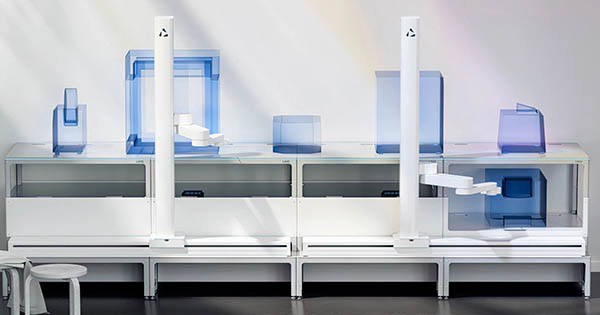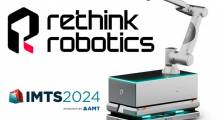Last week, Automata announced it was expanding into the U.S. and will soon open an office in Boston. This expansion comes alongside the launch of Automata’s fully-automated laboratory bench: LINQ. With LINQ, Automata said it will support customers in all markets to automate workflows in the exact same footprint as their existing benches.
LINQ uses open, integrated automation to connect instruments and automate the transfer of labware, and its modular design can be adapted for any workflow or lab space as required.
LINQ’s automation software also enables scientists to design and run automated workflows through a single dashboard, and ensure they are optimized for efficiency.
The lab automation company said the life sciences are leading the most important scientific revolution since computing accounting for approximately 7% of all US economic activity with the global life sciences tools market alone estimated at $102B in 2021.
Alongside generating a step change in health outcomes due to innovations in diagnostic and therapeutic modalities. This is happening in pharma, biotech, CROs, CDMOs, hospitals and diagnostic organizations. These organizations all have labs at their core which are extremely inefficient, manually intensive and facing fundamental challenges to scale, it said.
Automata said its mission is to unlock labs’ space, people, and potential through automation hardware and software that accelerate workflows in pharmaceutical and biotech companies, academic institutes, core testing labs and contract development and manufacturing.
Automata noted that it is entering the market at an exciting and critical time, as the US is considered the global leader in Life Sciences with more than a third of all life sciences companies headquartered in the country.
With Automata’s technology, the US life sciences industry will be empowered to cut workflow times by up to 50%, increase output, maximize existing lab space, and free up scientists to work on innovative research, it added.
Automata sees growth in U.K.
Its expansion comes following successful growth and customer partnerships in the UK since the company’s launch, including raising $50m in Series B funding in 2022.
Its partnerships in the UK include supporting bit. bio to scale the manufacturing of human cells; powering genome sample preparation at The Francis Crick Institute; and automating diagnostic testing with the UK’s National Health Service (NHS).
“The lab of the future is an automated one, where scientists have the capacity to work on innovative research, while automated systems effectively and efficiently carry out routine tasks,” said Mostafa ElSayed, co-Founder and CEO of Automata. “There is a huge need within the US Life Sciences industry to adopt automation to increase efficiencies, reduce human error and to allow scientists to focus on more strategic work; particularly in areas such as genomics and drug discovery which has long timelines and high costs.
“Our growth in the UK is a testament to our hard-working team and we are looking forward to the opportunities in the US for the Life Sciences market,” ElSayed said.
With this automation, walkaway time for scientists is increased, allowing them to work on more skilled tasks, while still having hands-on access to the open benches when required. This significantly increases the ability of labs to innovate and increase throughput, to help meet the ongoing challenges over the coming years.
The LINQ lab bench will first be showcased at SLAS San Diego 2023, demonstrating media exchange, cell counting and imaging, and quality control in genomics.
Article topics
Email Sign Up
















